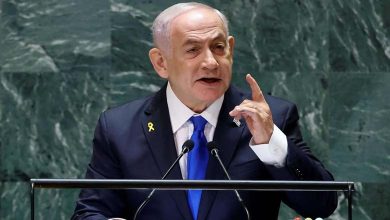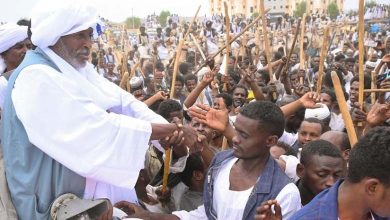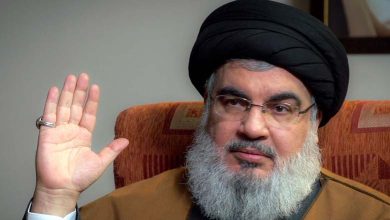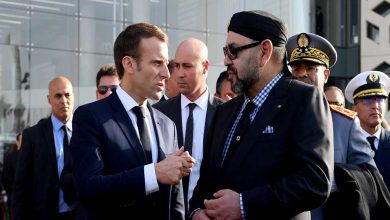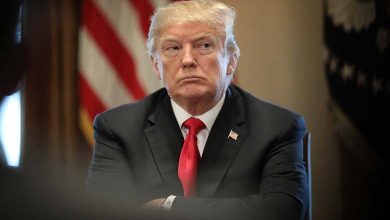Erdogan enacts new laws to crack down on dissent in media ahead of elections

Turkish reports have revealed that the government of President Recep Tayyip Erdogan is planning to increase its control over news sites and social media with new legislation, allegedly to combat misinformation as stipulated in the draft law submitted to the parliament, where the Turkish Intelligence Agency’s operations have also been widely controlled.
According to the Nordic Monitor survey, the opposition is concerned that it is up to Erdogan-controlled courts to decide what is “misleading” referred to in the law, and what is the false news. It is no secret that the Erdogan government, which controls almost all Turkish media, is unhappy with critical content in opposition media, especially content posted abroad, on social media, confirming concerns that the new legislation is part of an effort to build a legal mechanism that monitors sensitive publications and videos ahead of the 2023 elections.
The newspaper noted that the specialized parliamentary committee approved, the day before yesterday, Wednesday, the draft law drafted by the ruling Justice and Development Party and its partner “Nationalist Movement Party,” the far right. The committee meetings, which started at 14:30 a.m. on Wednesday, ended at 4:25 a.m. on Thursday.
The new law is expected to be presented to parliament for discussion in the coming days. The fact that the committee meeting ended without interruption reveals that the government aims to enact the law as soon as possible. The majority of the new laws proposed in the bill are to be implemented once the president signs the legislation, the rest as of January 1, 2023, and some observers feel this is a sign of the possibility of early elections.
With the addition of the new articles to the Turkish Penal Code, a crime was defined as “public dissemination of misleading information” for the first time. A person who disseminates misinformation is defined as “a person who publicly disseminates false information about the internal and external security, public order and public health of the country, in a manner appropriate to the breach of public peace, with the sole aim of creating anxiety, fear or panic among the public. Those who commit this offense are punished by imprisonment for a term of one to three years. “If the defendant conceals or commits the crime as part of a terrorist organizational activity, the penalty shall be doubled by half.”
Under the obligation of foreign social media platforms to have an actor, it would not be enough for an actor to be a Turkish citizen only; The representative will need to reside in Turkey. If daily arrival from Turkey is more than 10 million, the legal representative is supposed to be fully empowered and responsible for technical, administrative, legal and financial matters before the law.
According to the new legislation, the distinction between the commission of a crime in Turkey and abroad has been removed in order to combat more effectively crimes requiring arrest.
In the meantime, the draft law stipulates that the reasons for the arrest have been given to suspects who provide criminal content in connection with the activities and personnel of the Turkish intelligence service. The content is not defined.
News websites will also be included in the scope of the press law and will be defined as periodicals. Staff of these media institutions will also be able to obtain press cards. At the committee meeting, opposition MPs said the government had implemented the carrot-and-stick strategy, adding that among useful new articles for journalists, those intended for censorship had been added.
Having a press card in Turkey is essential for following up on official meetings and accrediting with NGOs. The press card also allows free use of public transportation in some cities and free parking.
In the new proposal, news websites will also have to submit the published content to the lead prosecutor’s office if requested.
“Last December, Erdogan made overtures to legislation criminalizing the online dissemination of false news and misinformation, calling social media one of the main threats to democracy.”
In a video message to a government-organized teleconference in Istanbul, Erdogan said: “Social media, which was described as a symbol of freedom when it first appeared, has become one of the main sources of the threat to democracy today.” “We try to protect our people, especially the vulnerable groups in our society, from lies and misinformation without violating the right of our citizens to receive accurate and impartial information.”
Turkey passed a law in 2020 requiring social media platforms with more than one million users to maintain a legal representative and store data in the country. “Since then, major social media companies, including Facebook, YouTube, and Twitter, have established offices in Turkey.”
Most major media companies in Turkey are under government control, leaving social media as an important outlet for dissenting voices.



